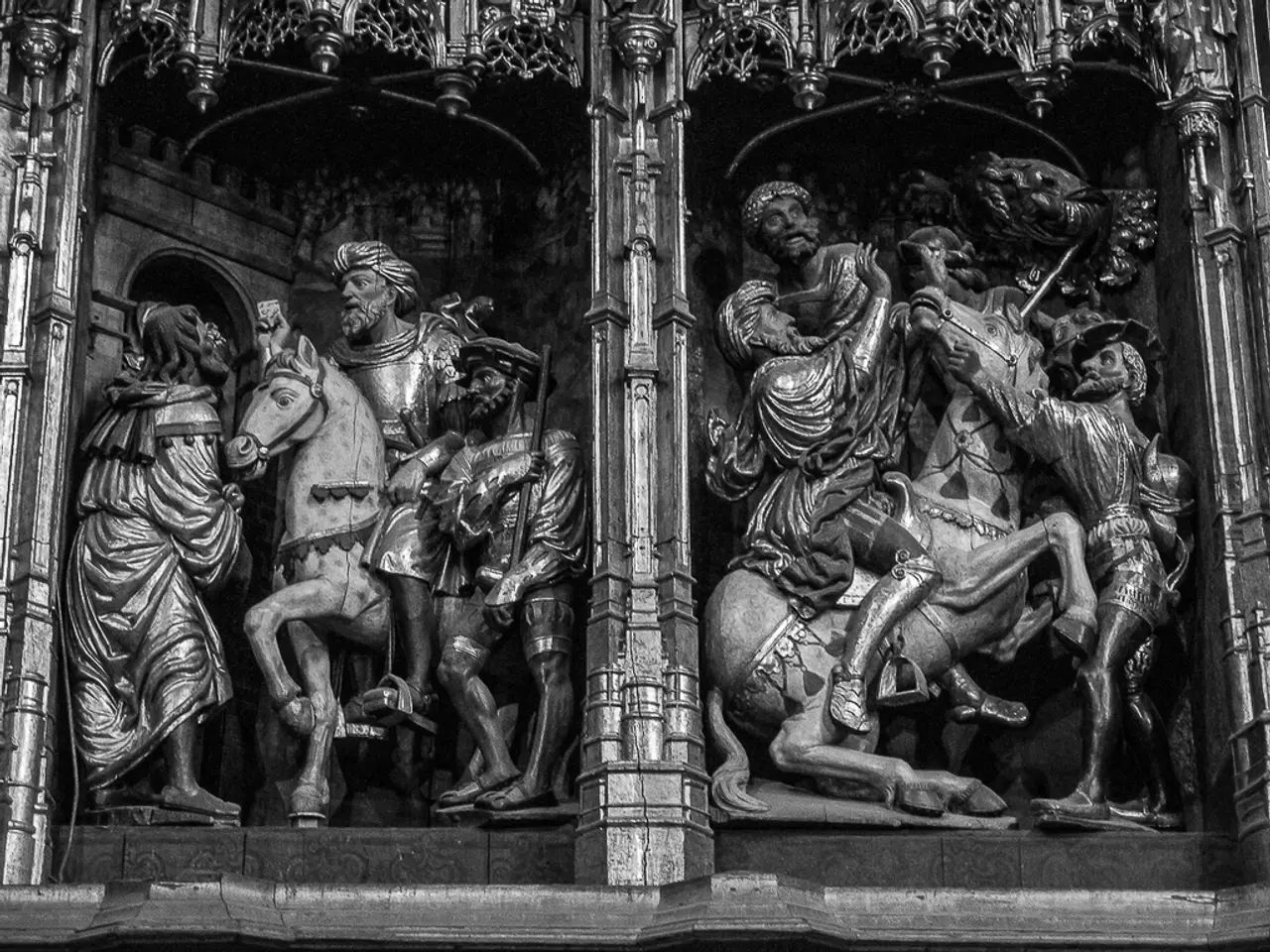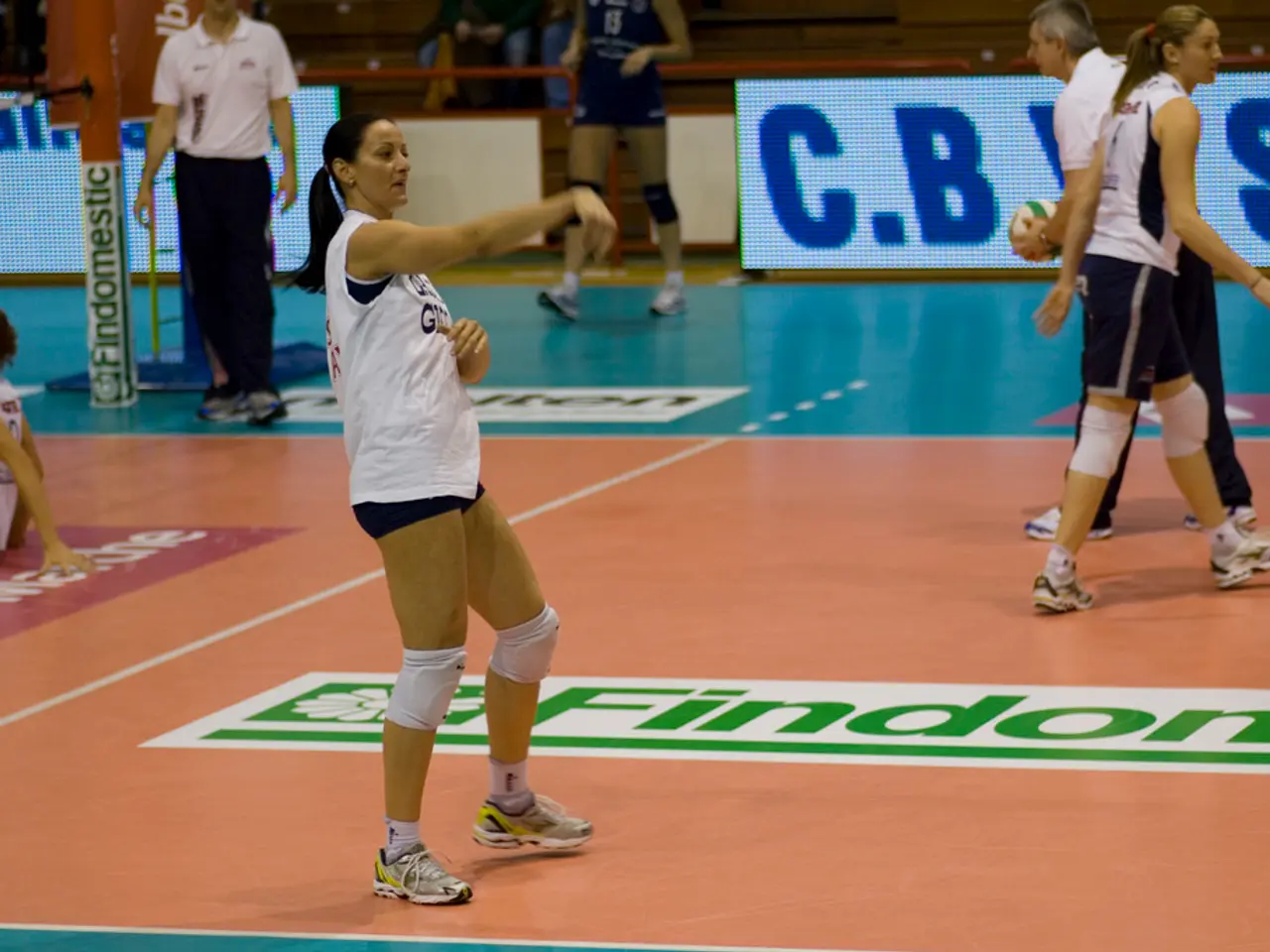Marina Abramovic, the renowned artist, is awarded the Imperial Prize. - Marina Abramovic receives the Praemium Imperiale, a prestigious international arts award.
Marina Abramović, a pioneering Serbian performance artist living in New York, has been awarded the Praemium Imperiale in the Sculpture category. This annual cultural prize, awarded by the Japan Art Association, recognises artists who have made significant contributions to their respective fields and opened up new perspectives through their creative idiosyncrasy.
Abramović's work, spanning over five decades, is characterised by its fearless interrogation of the human condition, the boundaries of performance, and the deep connection between artist and audience. Her groundbreaking performances, such as "The Artist Is Present" at the Museum of Modern Art (MoMA) in New York, have broken attendance records and solidified her place as one of the most influential performance artists in the world today.
One of Abramović's most famous early works, "Rhythm 0" (1974), involved offering herself to the audience to act on her body using various objects, including a loaded gun, symbolising surrender and trust. Her continuous creation of impactful performances, such as "512 Hours" (2014) in London and "Generator" (2014), exploring silence and sensory deprivation, have solidified her impact on contemporary art.
In addition to her performances, Abramović has expanded performance art's reach through talks and advocacy. She delivered a TED talk in 2015 about art made from trust and vulnerability, influencing new generations of artists and audiences. In 2007 and officially launched in 2012, she founded the Marina Abramović Institute (MAI), a nonprofit foundation dedicated to promoting long-duration performance art and interdisciplinary collaboration. Based in Hudson, New York, MAI serves as a hub for performance artists worldwide.
Scottish-born Peter Doig, a former professor at the Düsseldorf Art Academy, has also been honoured with the Praemium Imperiale. Doig, who follows in the footsteps of Joseph Beuys and Jörg Immendorff, has redefined the expressive potential of painting and is a leading figure of the New Figurative Painting.
Hungarian musician András Schiff, considered "one of the most significant pianists of our time," and Belgian choreographer and dancer Anne Teresa De Keersmaeker have also been honoured for their leading roles in music and contemporary dance since the 1980s, respectively.
Portuguese architect Eduardo Souto de Moura has won the architecture prize of the Praemium Imperiale. Internationally recognised for his modern, harmonious building concepts, Souto de Moura has already won the Pritzker Prize.
The 5 million yen (approximately 30,000 euros) young talent prize goes to the National Youth Theatre in the UK.
The prizes will be presented in October in Tokyo, Japan's capital. Each award is endowed with 15 million yen (approximately 90,000 euros). The Praemium Imperiale was established in memory of Prince Takamatsu (1905-1987).
The less favored regions could greatly benefit from community aid, as Marina Abramović's work and the Marina Abramović Institute (MAI) have demonstrated the power of long-duration performance art and interdisciplinary collaboration in inspiring new generations of artists.
Entertainment, such as music and contemporary dance, has also been recognized with the Praemium Imperiale, with Hungarian musician András Schiff and Belgian choreographer Anne Teresa De Keersmaeker honored for their significant contributions since the 1980s.







